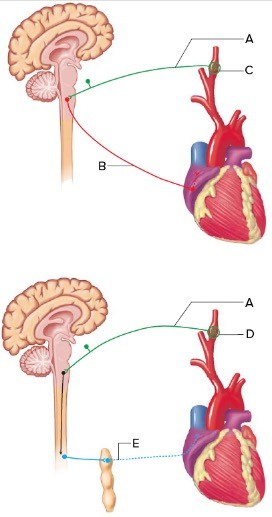 The figure illustrates the autonomic reflexes and the heart. What does "C" represent?
The figure illustrates the autonomic reflexes and the heart. What does "C" represent?
A. Vagus nerve
B. Increase in blood pressure detected by carotid baroreceptors
C. Decrease in blood pressure detected by carotid baroreceptors
D. Glossopharyngeal nerve
E. Sympathetic nerve
Answer: B
You might also like to view...
Damage to the cortical region of the representational hemisphere can cause dull, emotionless speech. This condition is called
A. hemiballismus. B. ataxia. C. aprosody. D. dyslexia. E. agnosia.
A person with heart failure is experiencing an increase in fluid returning to the venous circulation. Which body structures are most likely to visibly indicate this is happening?
A. Right and left atria B. Coronary arteries C. Tissues in the periphery D. Pulmonary arteries
Which of the following best describes arteries?
A. strong, rigid vessels that carry blood under high pressure B. thin, elastic vessels that transport blood under low pressure C. elastic vessels that connect arterioles and venules D. fragile vessels that are prone to rupture. E. strong, elastic vessels that carry blood under high pressure
What is the hard, waterproof protein that fills keratinocytes?
A. Sebum B. Melanin C. Keratin D. Corneum